There stands great Jephthah of Gilead, dumbstruck. The [1]Ammonites who had been harassing his people finally had been defeated at his hand. Before the conquest he had made a [2]vow to God that if victory would be his, then he would offer to God whatever first happened to come out of his house when he returned home. Now the victorious returned warrior watches horrified as his beloved only daughter emerges joyfully from his house and comes dancing to greet him.
Distraught, the father tells his daughter of his vow to God. We are told that the daughter [3]urges her father nevertheless to keep his vow, but asks for two months to sojourn in the mountains with her companions to lament her virginity (that is: her unmarried state), at the end of which time she promises to return. She duly and dutifully does so, and the vow is fulfilled. We are not told the manner of the daughter’s death, and neither is the [4]killing even mentioned by name. We merely are discreetly told that “at the end of two months, she returned to her father, who did with her according to his vow which he had made.”
But supposing that scripture instead were to confront us with specifics? Supposing, instead of merely ‘doing with her’, we were to read that “at the end of two months, she returned to her father, who according to his vow then slipped a cord about his daughter’s neck and tightened it fast until the veins of her throat burst, and her life blood flowed away.” This [5]scenario of the manner of her death is one likely reality, but reading it might not hold our sympathies either for Jephthah or God as much as the sanitized version which scripture offers us, as the unknown writer of this passage appears well to have realized.
The daughter was a young woman in the bloom of life. She had to be killed somehow. Scripture introduces her father by telling us that he was [6]‘a mighty warrior’. But the text then informs us that he had a background in common brigandage: this was a man used to killing with weapons, to taking life with his own brute strength. However he killed his daughter, it would have been a grim and bloody hands-on business. But the actual killing only fulfilled the first part of Jephthah’s vow. He also had promised God that he would make a burnt offering of whatever he sacrificed. We must assume that this was done as well, although scripture discreetly leaves the deed unmentioned once the killing has taken place.
 |
| During her two-months sojourn in the mountains with her companions, the daughter contemplates her coming fate and seeks some form of reconciliation with events. |
A burnt offering is exactly what the term implies: it is the carcass of an animal or the corpse of a human that has been slain for sacrificial purposes, which is then completely burned on a pyre so that the smoke from the burning flesh can waft heavenwards to give pleasure to the god or gods in whose name the sacrifice has been made. Since this was a part of his vow, and since Jephthah ‘did with her according to his vow’, he must have done this also. Having killed his daughter, he would then have burned her corpse, not as a cremation, but as part of the sacrificial ritual. But again the clear impression from the text is that the writer sensed the grim distastefulness of this final act of the vow, and so deliberately avoided mentioning it after the killing had occurred.
 |
| Smoke from the daughter's pyre begins to drift heavenwards. As a burnt offering, the burning is not a cremation, but a part of the sacrificial ritual. |
Intriguingly, we instead learn from the text that from that time ‘the daughters of Israel’ observed a four-day period of lamentation each year for the daughter of Jephthah. The yearly observation (by women, nota bene) is for the slain daughter. There is no mention of any observance of the father’s obedience to God in keeping his vow, and neither the vow nor the sacrifice are further mentioned in Jephthah’s continuing story. When reading this passage in scripture, there is an unstated undercurrent that the writer sensed that things had gotten way off track, that Jephthah went too far, but that the basic message of obedience to God nevertheless had to be pushed home. The undercurrent is felt, not so much in what is openly said, but in the grim details which have been discreetly omitted.
Another detail which has been omitted is painfully obvious: we never [7]learn the daughter’s name. One might perhaps argue that this is incidental to the point of the story, but would it have been overlooked if the object of the sacrifice instead had been Jephthah’s only son? It certainly is not the only [8]story in scripture in which the name of a principal female protagonist remains unmentioned. This young woman who became a human sacrifice to God remains forever anonymous.
And the most distasteful aspect of the story is not that the daughter was the victim of sacrifice (however reconciled she might have been to her fate), but that the apparent point of including the story in scripture is instead to laud her father’s obedience, however misguided, to his vow to God. Nowhere in scripture are this man’s actions condemned, or even critically scrutinized. In fact, when Jephthah is mentioned in the New Testament (Hebrews 11:32-33) it is not to condemn him for his inhuman actions, but to praise him for his faith.
And the most distasteful aspect of the story is not that the daughter was the victim of sacrifice (however reconciled she might have been to her fate), but that the apparent point of including the story in scripture is instead to laud her father’s obedience, however misguided, to his vow to God. Nowhere in scripture are this man’s actions condemned, or even critically scrutinized. In fact, when Jephthah is mentioned in the New Testament (Hebrews 11:32-33) it is not to condemn him for his inhuman actions, but to praise him for his faith.
This is morality turned on its head. A sordid story of actual human sacrifice in God’s name is presented as a scriptural morality tale of observance of one’s vow to God. Unlike the story of [9]Abraham and his intention to sacrifice his son Isaac (again at God’s demand), no angel of the Lord miraculously appears to stay the hand holding the knife once the protagonist had shown his full intention to carry out the deed. In the story of Jephthah, the knife is actually driven home. The daughter actually dies. It is a story unrelenting in its gothic grimness.
But whether or not the incident actually happened, whether it is history or metaphor, is irrelevant to the reality of the moral question which it presents. The moral values of Jephthah are in reality those of a murderer. That the story happens to appear in scripture does not in some obscure way change those moral values for the good, and if we think that it does, what does that say about our own moral values?
Well, such ‘moral values’ are exemplified in a Christian Apologist [10]website article about this incident which, in striving to justify what is actually morally reprehensible, makes the guarded observation that [11]“no indication is given in the text that God actually approved of the action.” Really? God, I was always told, is all-knowing, so he would have known at the time that Jephthah made his vow who was going to come out of the house first. And God is also [12]all-powerful, so if he saved the day before by having his angel intervene to spare Isaac, then he could have done so on this occasion as well – or just shuffled the deck by having a chicken run out of the house instead. He did, after all, manipulate the previous situation to ensure that a ram was substituted for Abraham’s son.
Tacit inaction, to paraphrase Archbishop Desmond Tutu, is tantamount to action in support of injustice. In this light, and in spite of what the above apologist article attempts to excuse, God seems to have been pretty okay with the way things went down on that dark day in Gilead. And for Jephthah’s daughter, whose very name remains unknown to us, there was to be no timely last-minute intervention by the angel of the Lord.
Hawkwood
The complete story of Jephthah’s daughter can be read in The Book of Judges 11:29-40. The quotations from scripture in this post are from the Revised Standard Version. An abridged version of this story can be read in my post Frontier Justice in the Promised Land.
Notes:
[1] Two Tribes: The Ammonites were one of two tribes (the Moabites were the other) founded by the sons of Lot’s two daughters resulting from their incest with their father. The Ammonites’ incursions into Jephthah’s territory were not invasive. They previously had been displaced eastward by Joshua’s earlier conquest of the area, and three centuries later made this bid to reclaim their lost homelands.
[2] What is Really Sacrificed? One pro-scriptural argument is that the story is a salutary lesson in making rash promises, particularly to God. I would suggest that it is a salutary lesson in the reckless folly of keeping a vow when holding to that vow means not only sacrificing one’s daughter, but also one’s own humanity. The Book of Judges maintains a stony silence about the morality of Jephthah’s actions, and any ‘salutary lessons’ which are supposed to be drawn from the story are passed over.
[3] Who Consoles Whom? In this emotion-charged scene it is actually Jephthah who tears his clothes in despair, even to telling his daughter that by her actions it is she who is “the cause of great trouble” to him. While her father indulges in despairing self-pity, it is the daughter who remains resolute and strong, even to the point of consoling her distraught father and then calmly making a plan for the coming event. When push comes to shove, the woman is stronger than the man. Just like in real life.
[4] Words as well can be Sacrificed: In fact, at no time does scripture actually use the word ‘sacrifice’, either about the daughter or in relation to what takes place. But since a burnt offering clearly must first be sacrificed as part of the ritual, this is a further indication that the original writer of the text and all subsequent translators were aware of how distasteful this incident was, and were attempting to gloss over the difficult reality in order to make the story more palatable.
[5] Knife or Rope? Although a burnt offering was usually sacrificed with a knife, a female human victim could have made strangulation a possible alternative option. My description of the act is loaned from the author Cormac McCarthy in his book No Country for Old men. It is always possible that the original unknown writer assumed that his readers would be aware that a knife would have been used as the traditional means of sacrificing a burnt offering.
[6] A Man of Valour? The phrase “a mighty warrior” appears in the Revised Standard Version (Judges 11:1). In the King James Version the phrase is “a mighty man of valour”. You may choose whether or not you consider ‘warrior’ to be equitable with ‘valour’ in relation to Jephthah.
[7] Where is the Mother? The text is also mysteriously silent about someone else. No mention is made of the daughter’s mother. Perhaps Jephthah was a widower, or perhaps his wife was anonymously present: another unnamed woman who has remained a cypher, a shadowy presence whose existence is confirmed only obliquely by the existence of the daughter. I tend to assume that Jephthah was a widower, or at least a man living without the mother of his child. His misguided and callous behaviour lacks a woman’s restraining hand.
[8] More Unnamed Daughters: In the story of Lot and his escape from the city of Sodom (Genesis 19:1-38) we never learn the names either of Lot’s wife (who turned into the famed pillar of salt) or of his two daughters who feature prominently in the story as their father's seducers, although the names of their sons from this incest (Moab and Ben-ammi) are supplied as soon as they appear on the scene. Painting (right) of Lot being Seduced by his Daughters, by Robert von Stutterheim. Please see my post Lot and his Daughters: The inside Story.
[9] Jephthah’s Only Son? Abraham’s only beloved son Isaac was saved from sacrifice by God’s intervention. The point needs to be made that the angel of the Lord might have been more readily prompted to swing into action and intervene on Jephthah’s only daughter’s behalf had she been Jephthah’s only son. Please see my post Abraham, Isaac and a Stressed Out Ram.
[10] Where is the Body? The apologist article in Apologetics Press (Jephthah's Daughter, by Eric Lyons, M.Min.) on the sacrifice of Jephthah’s daughter (left, by Pietro Vecchia) strives to wriggle out from under by instead suggesting that her father did not actually kill her at all, and that the ‘sacrifice’ is a mere figure of speech referring to offering her (as the article suggests) for “religious service in the Tabernacle.”
[10 cont.] Hence this Apologetics Press article’s astonishing conclusion that: “Jephthah was not upset because his daughter would die a virgin. He was upset because she would live and remain a virgin.” Seriously? This startling apologist claim that no killing actually took place because the ‘sacrifice’ is intended to be read as a mere euphemism, collapses when we remember that the sacrifice became a burnt offering: difficult to achieve with no body to burn. The scriptural text is unambiguous: Jephthah vowed a burnt offering. The daughter became the unwitting object of the vow. Jephthah "did with her according to his vow which he had made". Therefore: the daughter became the vowed burnt offering. This conclusion drawn from the text leaves no room for 'nicer' interpretations, however much apologists might wish it so.
[10 cont.] Hence this Apologetics Press article’s astonishing conclusion that: “Jephthah was not upset because his daughter would die a virgin. He was upset because she would live and remain a virgin.” Seriously? This startling apologist claim that no killing actually took place because the ‘sacrifice’ is intended to be read as a mere euphemism, collapses when we remember that the sacrifice became a burnt offering: difficult to achieve with no body to burn. The scriptural text is unambiguous: Jephthah vowed a burnt offering. The daughter became the unwitting object of the vow. Jephthah "did with her according to his vow which he had made". Therefore: the daughter became the vowed burnt offering. This conclusion drawn from the text leaves no room for 'nicer' interpretations, however much apologists might wish it so.
[11] Taking Sides: The logic of such apologist arguments is wholly partisan. As I point out in my post on the Book of Joshua about that particular Israelite ‘hero’, had Jephthah happened to have been ‘on the other side’ (that is: a non-Israelite), and had he nevertheless acted exactly as he does in the Book of Judges, apologists would be falling over themselves to piously condemn him as a despicable monster, and his murder of his own daughter in the name of his god as a wretched deed of truly heathen darkness.
[12] An Interventionist God: I am all too aware that, in their attempts to find some justification for such dark deeds in the name of God, apologists will protest that God allows us (and therefore Jephthah) to exercise our own free will: that he gives us the freedom to determine our own actions and so learn by our errors. But the God of scripture is an interventionist God. He intervenes to drown his own creation. He intervenes to destroy Sodom and other Cities of the Plain. He intervenes to feed his starving people in the wilderness of the Exodus. He intervenes on the battlefield to fight alongside Joshua. He intervenes to save Abraham’s son. He does not intervene to save Jephthah’s daughter.
Sources:
Top image: Jephthah and his Daughter, painted for this post by Hawkwood for the David Bergen Studio © All Rights Reserved. based upon the sculpture by Emil Wolff, from a photo by Haffitt. 2nd image; The Lament of Jephthah's Daughter, by George Hicks. 3rd image: Jephthah's Vow: The Martyr, by Edwin Longsden Long. 4th image: Abraham and isaac, by Laurent de la Hyre. 5th image: marble statue of Jephthah’s Daughter in the Art Institute of Chicago, by Chauncey Bradley Ives, photographer unknown. Map and other graphics by Hawkwood for the © David Bergen Studio.

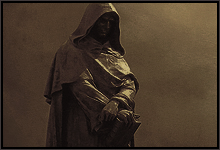



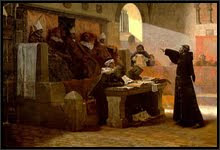

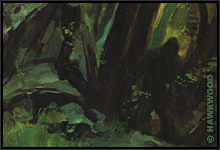
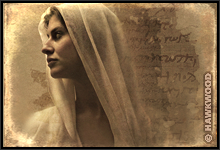


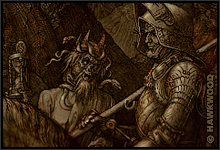
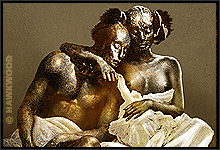

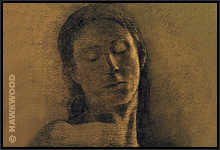
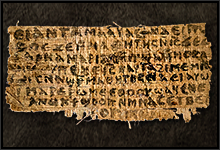













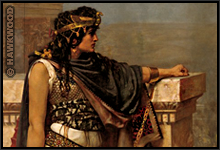

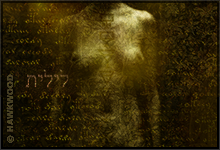
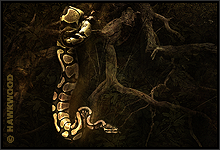
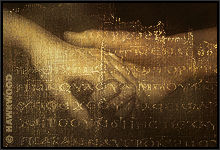
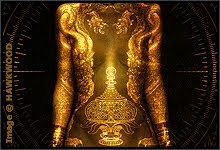
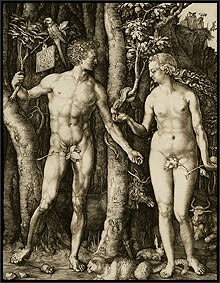
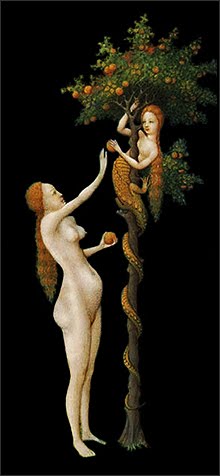

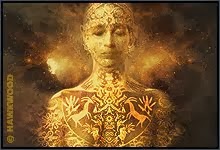


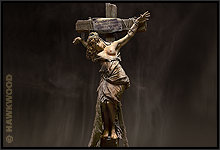

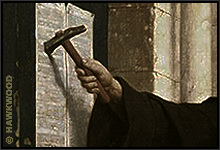


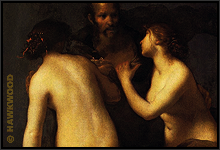



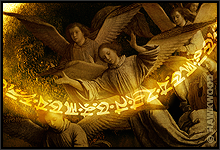

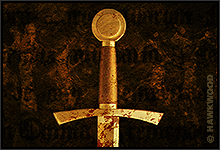
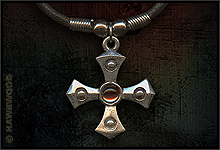
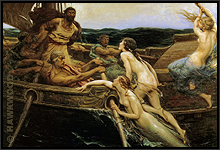

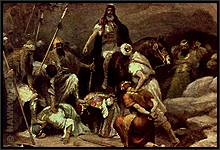
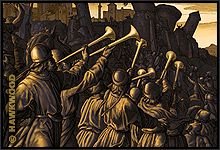
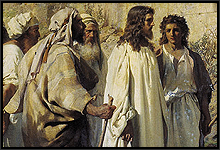
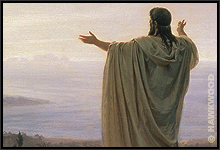
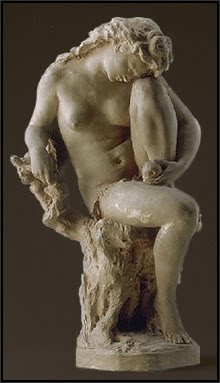
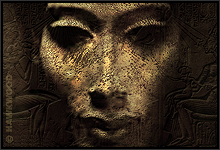



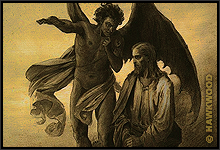
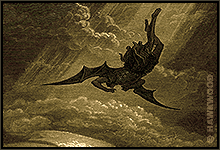




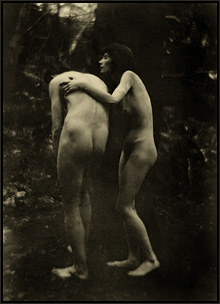


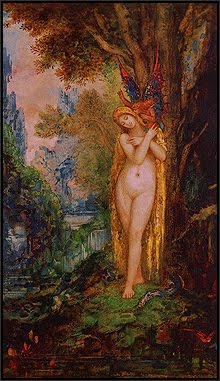


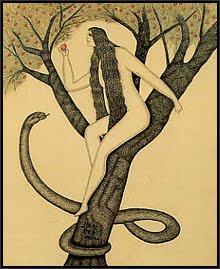








this is very good and i have reblogged it as a way to remember. i want to write about this in the future. thanks
ReplyDeleteThank you Anon. It's a story that should be remembered. Perhaps you could supply a link to your own blog? Thanks!
DeleteThanks for your thoughtful take on this passage.
ReplyDeleteRegarding (10), the "dedication view" as it's called, sees the vow in two parts. Whatever comes out of the house A) belongs to the Lord OR B) i will offer it as a burnt sacrifice. This requires a specific Hebrew conjunction "vav" to be rendered as "or" instead of "and". See here: http://thetorah.com/did-jephthah-actually-kill-his-daughter/
I make no claim on the strength of this translation, but you've misrepresented that solution by leaving it out and merely asserting the text is "unambiguous". It is ambiguous, as your repeated mention of the author "softening" the execution admits. Has he softened it because he thought it was wrong and horrible, or is it softened because there wasn't actually an execution?
Also, (12), the demand for God to intervene in this act because he intervened in others is special pleading. Unless you protest the idea of God giving humans free will at all, and expect God to stop all sin by direct intervention, your dismissal of this defense falls flat. Or rather it turns into the much more general "problem of evil" and free will. But then we're no longer impugning God based on Jephthah being whitewashed by Scripture, but rather on the general allowance of evil in the world. That's a different post.
Rick, thank you for your thoughtful and insightful comment. The extra information which you provide includes the idea that there is ambiguity in the text of the original Hebrew. I did take the time to read the link which you provided, but that really is the point: the ambiguity is there, and it cannot conclusively be resolved one way or the other.
DeleteI think that it is always good to remember the historicity of these texts. The Book of Judges was written over two and a half millennia ago. The minds which wrote these ancient texts were far removed from our own, both in time and in cultural context, and we inevitably to some extent layer our own norms and values upon theirs. Human sacrifice (even animal sacrifice in certain cultures) is an abhorrence to us. But how did those minds who wrote these texts really evaluate such actions?
My other point is that mentioned in my note [11]: that whatever side of such textual ambiguities we come down upon rests more likely than not upon our own beliefs. Had Jephthah been 'on the other side' there would be no hesitation in describing his actions as despicable, textual ambiguity notwithstanding.
I do not agree that my point in note [12] is special pleading. The Bible provides its own prior example of willingness to make a human sacrifice in God's name. As I point out by named examples in that note, we are not discussing the God of 'now', of our own 21st-century take on things. We are discussing the Hebrew God of those far times, who was very clearly and by His actions an interventionist god. And if He intervened on those other occasions (which He did, and very dramatically), then using those other examples as a yardstick He clearly chose not do so in Jephthah's situation. That is not 'special pleading'. That is merely providing examples from the texts themselves, and raising the inevitable question mark which those examples throw up.
Special pleading excludes any justification for the exception which it provides. The justification in this case is already provided by my string of examples demonstrating that God in the scriptures is indeed an interventionist god. The episode involving Jephthah is therefore an exception by default.